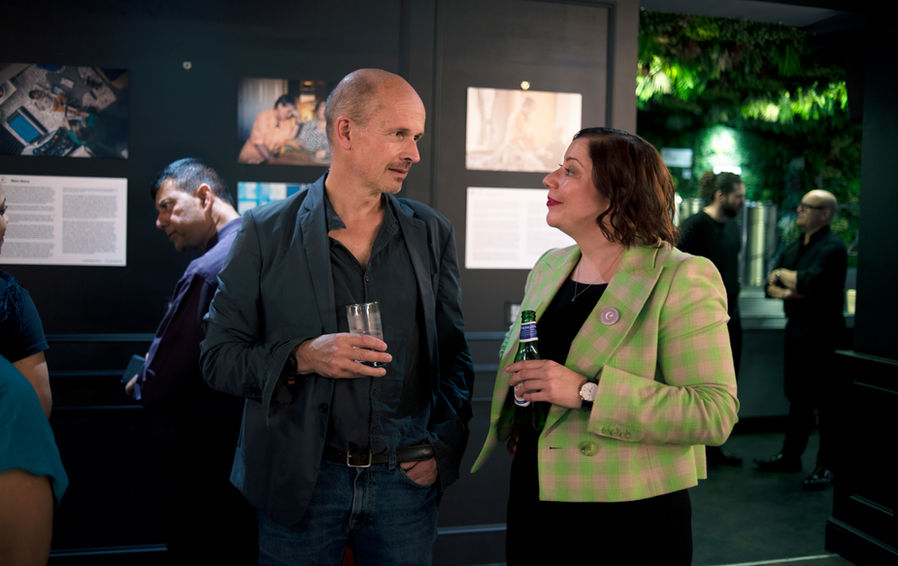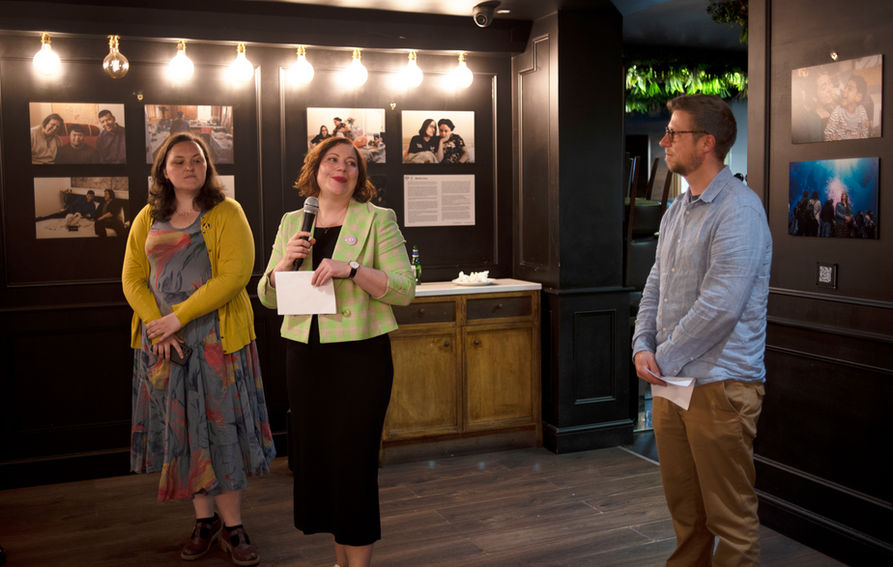


This exhibition presented a collection of stories written and photographed by Invisible Army with a huge thanks to Carefree - a charity transforming vacant hotel rooms into vital breaks for full-time unpaid carers.
We worked collaboratively with carers and their families within their homes, witnessing their everyday lives and documenting intimate stories.
Each of the carers presented have taken a break with Carefree.
Thank you to the carers and their loved ones who courageously shared their stories with us.
We wish to give a special THANK YOU to St Giles Hotel who since 2023 donated 206 carer breaks and hosted this exhibition.
.webp)
Please check out our evaluation of this project! -

"Caring is both the hardest thing we've ever done and the most transformative," Shurron says. Kel nods and adds, "It's mainly hard because of the underfunded systems, the barriers to support, and society's failure to value it… which is wild because every one of us exists because someone cared for us, so surely it’s one of the most valuable types of work?"
"And it's also profoundly beautiful," Shurron continues, "but we rarely hear about that side of things because it's always framed as sacrifice. Our journey as carers has revealed depths of love, creativity and resilience we might never have tapped into otherwise. It’s like caring has given us a lens through which we view life, where we see magic in moments we may have otherwise overlooked."
Here is a little glimmer of each carer story which featured at this exhibition:
“I’m actually quite nervous about the one-night break I have coming up,” shares Mitelia. “I don’t know how Jay will manage emotionally. I won't be able to help them regulate.” Jay does not like being away from Mitelia. Most, if not all, of the couple’s time is spent together. Mitelia explains, “As an introvert I sometimes have to say to Jay that I need 10 minutes on the sofa alone to recharge, but that’s the furthest I’ve been from them in a while.”


Jean and Peter were married in 1953. “Jean was on one side of the cafe, me on the other,” recalls Peter. “We locked eyes and that was it: love at first sight. We were married a year later. The taxi we’d booked to take us to our wedding didn’t arrive, so we had to take the bus!”
It can take Sarah up to three hours to get to her parents’ house on public transport. “I don’t drive,” she explained. “Last year I took 580 buses to care for them.” Because their health has been worse recently, she’s currently staying in the spare room. “I haven't slept properly in 14 weeks, with mum and dad going in and out of hospital and meeting their care needs,” she says. I wish I could be by the sea - that’s where I feel at peace with myself.”
When Rieanna arrives at Bridget’s home, she takes a moment to check how she’s doing – whether there is anything she needs to talk about and if everything is in order in the flat. You can see Rieanna loves her mum and wants the best for her.
Read full story on our blog - HERE


“People think I choose to be a stay-at-home mum. That couldn’t be further from the truth. I feel like I’ve lost my identity. This is not what I thought parenthood would be for me. Jayden relies on me for all aspects of his care. He needs my help with everything. I do his various therapies throughout the day. There are lots of things that go into our day-to-day which surpass that of the average stay-at-home parent. I’m constantly having to guess what Jayden wants and needs as he doesn’t have the language to tell me. When he’s crying and clearly frustrated it’s so hard to know what I’m doing wrong. I have no choice but to stay positive and meet Jayden’s needs,” she shares, “But some days I’m so tired I could cry.”
Ally noticed a lack of holistic approaches to care. “Using music and art is fantastic as it needs no verbal language,” he explains. “But you need to make community and activity groups happen. I’ve learned that you can’t wait for your local authority to do it.”
Ally created a club called Upside of Down. “Our aim is to promote real inclusion without barriers,” Ally explains. “Inclusion is often spoken about, but it often feels more like segregation to me.”
He feels that people's talents should be used within their support. “Bashir likes music, so we thought he could learn to dance and then work in the dance industry. Bashir now lights up when he’s dancing and loves connecting with his peers.” Ally shared.

Wednesday 11th June 2025
London


























